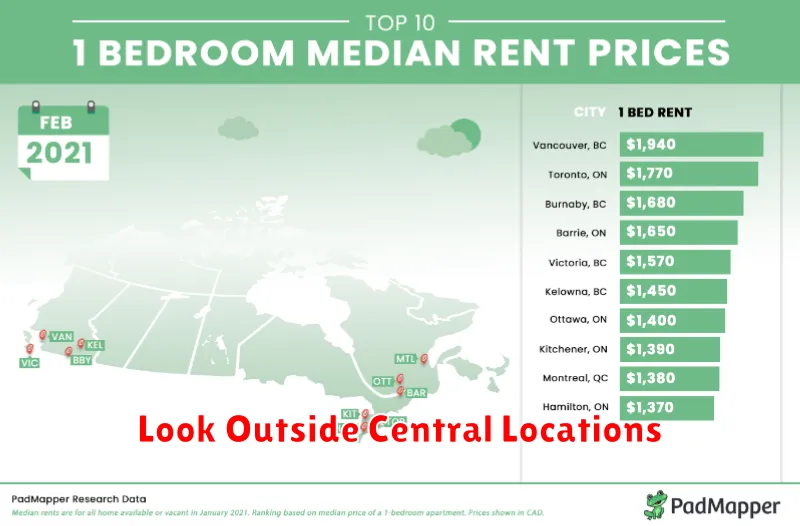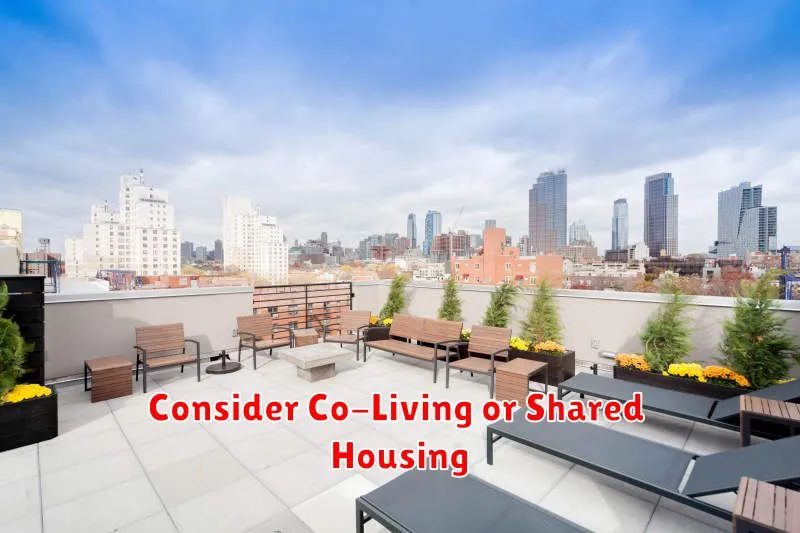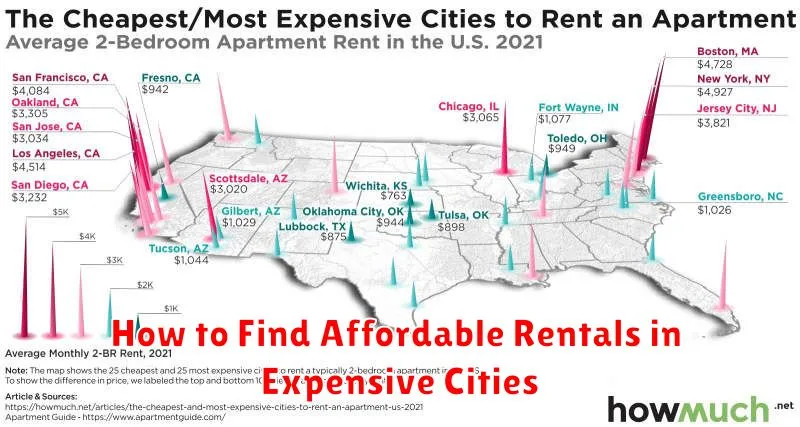Finding affordable rentals in expensive cities can feel like searching for a needle in a haystack. Sky-high rents, fierce competition, and limited inventory make the process daunting for prospective tenants. However, securing an affordable place to live in a desirable urban area is not impossible. This article will provide you with proven strategies and practical tips to navigate the challenging rental market and find an affordable rental that meets your needs, even in the most expensive cities. Learn how to effectively search for listings, negotiate favorable lease terms, and ultimately, make your dream of living in a vibrant city a reality without breaking the bank.
From understanding the nuances of different neighborhoods to leveraging online resources and connecting with local real estate professionals, we’ll explore a comprehensive range of tactics to help you find affordable rentals. This guide will equip you with the knowledge and resources you need to successfully navigate the competitive landscape of expensive cities. Whether you’re a recent graduate, a young professional, or simply looking to relocate, discover how to unlock housing opportunities and find an affordable rental that aligns with your budget and lifestyle. Get ready to embark on your journey to finding the perfect, budget-friendly home in the city of your dreams.
Why Rents Are High in Big Cities
High rents in major urban centers are primarily driven by the fundamental economic principle of supply and demand. Cities offer concentrated opportunities for employment, education, and cultural experiences, attracting large populations. This high demand, coupled with limited available housing, especially in desirable central locations, drives prices upwards. Further exacerbating this issue are zoning regulations and building restrictions, which can constrain the supply of new housing units, making existing units more valuable and thus more expensive.
Amenities also play a significant role. Big cities often offer convenient access to public transportation, a diverse range of restaurants and entertainment venues, and proximity to high-quality healthcare and education institutions. These desirable features increase the competition for housing within city limits, pushing rents higher. Additionally, areas with highly-rated school districts or low crime rates typically command premium prices, reflecting the increased demand from families and individuals seeking these specific benefits.
Finally, economic growth and job creation within a city can further inflate rent prices. As businesses thrive and employment opportunities increase, more people are drawn to the area, further increasing the demand for a finite supply of housing. This can lead to bidding wars and rapid price escalation, particularly in rapidly developing urban areas with strong economic prospects.
Look Outside Central Locations

When searching for real estate, particularly in competitive markets, expanding your search beyond the central locations can yield significant advantages. Prices are often lower in surrounding areas, providing an opportunity to acquire more property for your budget or save money. Additionally, you may find properties with larger lots, more privacy, and a different community feel.
While commuting times might increase, this can be offset by the financial benefits and the quieter, less congested lifestyle often found outside city centers. Consider the trade-offs carefully, weighing factors like commute length, amenities, and lifestyle preferences. Exploring these areas can uncover hidden gems and excellent value.
Before dismissing areas outside the city center, take the time to visit and explore. You might be surprised by what you find. Think about your must-haves versus nice-to-haves, and consider whether a longer commute is a worthwhile trade-off for achieving your real estate goals.
Use Housing Assistance Programs

Housing assistance programs can provide crucial support for individuals and families struggling to afford safe and stable housing. These programs, often offered through government agencies and non-profit organizations, can take various forms, including rental assistance, subsidized housing, and homeownership assistance. Eligibility requirements vary based on income, household size, and other factors. It’s essential to research and understand the specific requirements of each program to determine which options best suit your needs.
Applying for housing assistance programs typically involves completing an application, providing necessary documentation (such as proof of income and identification), and undergoing an eligibility review process. Wait times can vary, so it’s crucial to apply as early as possible. Many programs maintain waiting lists, and applicants are prioritized based on need and eligibility. Once accepted into a program, participants must adhere to the program’s rules and regulations to maintain their assistance.
Finding information on available programs can be done through various channels. Contacting your local housing authority or social service agencies is a good starting point. Online databases and search engines can also provide information on national and local programs. Don’t hesitate to reach out for help – navigating the application process and understanding the various program options can be complex, and assistance is readily available.
Consider Co-Living or Shared Housing

Co-living and shared housing offer affordable living arrangements, particularly beneficial in expensive urban areas. These options involve sharing a living space with others, reducing individual costs for rent, utilities, and sometimes even groceries. Co-living spaces often provide furnished rooms and shared common areas like kitchens and lounges, promoting a sense of community. Shared housing typically involves renting individual rooms within a larger house or apartment, sharing common spaces with housemates.
While cost savings are a primary motivator, these living situations also offer social benefits. They can alleviate feelings of isolation, especially for those new to a city or those who prefer a more social living environment. However, it’s crucial to carefully consider compatibility with potential housemates to ensure a harmonious living experience. Clear communication and established house rules are essential for successful co-living or shared housing.
Before making a decision, thoroughly research potential co-living spaces or shared housing options. Consider factors such as location, amenities, house rules, and lease terms. Meeting potential housemates beforehand is highly recommended to assess compatibility and ensure a good fit. By carefully considering these aspects, individuals can find a comfortable and cost-effective living solution.
Set Alerts on Multiple Platforms
Setting up alerts across different platforms ensures you never miss critical updates. Whether it’s for stock prices, severe weather, or news updates, configuring alerts on your phone, computer, and other devices keeps you informed. Start by identifying your key information sources and explore their notification settings. Most platforms offer granular control, allowing you to customize alert types, frequency, and delivery methods.
Consider centralizing your alerts whenever possible. Using a unified communication platform or integrating alerts into a single app can streamline the process and prevent notification overload. For example, some email clients allow you to set up filters and notifications for specific keywords or senders, consolidating information from multiple sources. Explore options like RSS feeds or dedicated notification management apps to further refine your alert system.
Finally, regularly review and refine your alert settings. Over time, your information needs may change, or you may find yourself overwhelmed by too many notifications. Periodically assess the effectiveness of your current alerts and adjust them accordingly to ensure they remain relevant and manageable.
Be Flexible with Move-In Dates
Being flexible with your move-in date can significantly increase your chances of securing a rental, especially in a competitive market. Landlords often have vacancies scattered throughout the month. By being open to a range of dates, you present yourself as a more accommodating tenant, which can be a deciding factor. For example, mid-month or end-of-month move-in dates are often less in-demand than the beginning of the month.
Flexibility also demonstrates your willingness to work with the landlord. This can build a positive relationship from the start. You could inquire about upcoming vacancies a few weeks or even a month in advance, expressing your adaptable move-in timeframe. This proactive approach shows initiative and increases your visibility to potential landlords.
If you’re working with a real estate agent, be sure to communicate your date flexibility clearly. They can use this information to their advantage when negotiating with landlords on your behalf. It also allows them to broaden their search and present you with more rental options that might not have initially seemed feasible.
Negotiate Lease Terms to Save Money
Negotiating lease terms is crucial for securing a favorable agreement and minimizing expenses. Rent is often the largest operating cost for businesses, so securing a lower rate can significantly impact your bottom line. Other key areas to negotiate include the lease term, renewal options, and tenant improvements. Carefully analyzing these aspects and presenting a well-reasoned argument can lead to considerable savings over the life of the lease.
Before entering negotiations, thoroughly research market rates and comparable properties. Understanding the current market conditions will strengthen your bargaining position. Be prepared to present your research and articulate the value your business brings to the property. Flexibility is also essential. Consider compromising on certain terms to secure a better deal overall. For example, agreeing to a longer lease term might allow you to negotiate a lower monthly rent.
Don’t be afraid to seek professional advice. A real estate attorney or lease consultant can provide valuable insights and negotiate on your behalf. They have experience with lease agreements and understand the intricacies of commercial real estate. Their expertise can help you avoid costly mistakes and achieve the best possible outcome. Investing in professional guidance can ultimately save you a significant amount of money in the long run.

